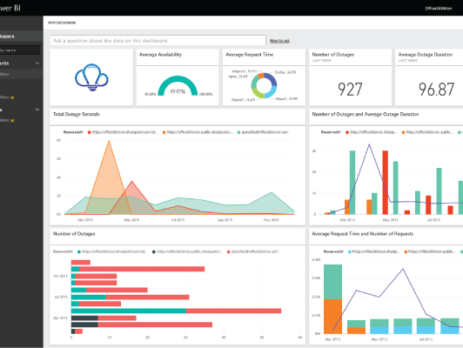The Top 10 Reasons You Should Migrate from SSRS Reports to Power BI
Companies have gotten good – no, really good at collecting data. Reporting on it in a timely fashion for decision makers has always been an issue, at least if you leaned heavily on SSRS reports. Thankfully, Power BI solves a lot of those challenges. With that, we give you the top 10 reasons you should make the switch.
- Power BI is much easier to develop in. Reports that used to take days for a developer to create with SSRS can be done with a couple hours in Power BI
- Visual layouts are faster. Sure, you get per pixel controls in SSRS but with Power BI you can change layouts quickly, reducing the feedback cycle with end users and speeding report production
- Power BI supports a much larger range of data sources. Integrations are point and click to systems you already use like Dynamics 365
- Power BI fits better into Azure and the cloud. It’s build with cloud apps in mind, whereas SSRS doesn’t really fit into the modern cloud architecture that Microsoft and others are pushing
- SSRS doesn’t have data modeling capabilities. It’s all SQL behind the scenes which requires a developer to manage. Power BI has modeling right out of the box
- Power BI is very self-service friendly. If a business decision maker knows what they need, the odds are good they can get it themselves – freeing up devs for more valuable work
- Speaking of #6: natural language queries. Reports can be built by simply typing what you’re looking for and letting the intelligence of Power BI go get what you need
- Ability to automate data refreshes. Power BI can be scheduled for data refreshes, while SSRS executes at run time. So if you’re dealing with huge data sets, SSRS can take a while – or crash altogether
- Power BI has compression built in where SSRS reports do not. In SSRS, as you go to the next page of the report you are returning all results all over again
- Power Apps can be embedded within Power BI, enabling users to change incorrect data on the fly vs going to the source to change it
Are you looking at migrating your SSRS reports to Power BI but don’t know where to start? Contact us below and let our experts get it done.
